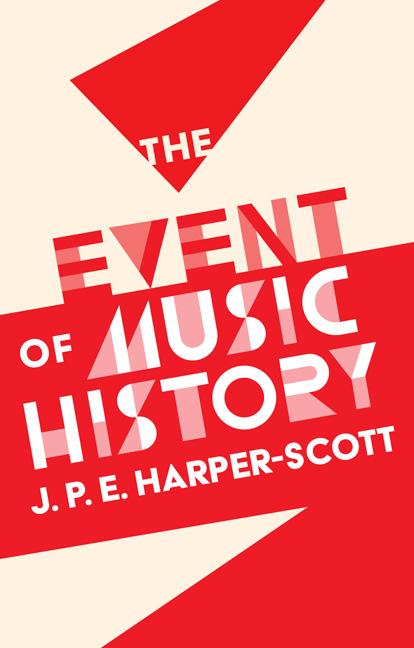2 - What is a Subject of Music History?
Published online by Cambridge University Press: 27 March 2021
Summary
Genres of Historical Writing
CONSCIOUSLY WRITING IN THE shadow of Hayden White's pioneering work (White 1973, 1990), contemporary theorists of history, principal among whom are F. R. Ankersmit (Ankersmit 1994, 2001, 2012), Keith Jenkins (Jenkins 1991, 2003), and Alun Munslow (Munslow 2006, 2010), advocate a theoretically sophisticated model of history-writing which can treat what they diagnose as a crisis of epistemology for the writing of history in the post-war West. Broadly postmodern–deconstructionist, and for that reason explicitly anti-empiricist, the theory of history which has taken shape in their writings is one that requires traditional historical scholarship to respond to the ‘devastating’ challenge represented by an assortment of intellectual repositionings which are familiar across the humanities – ‘the linguistic turn, deconstructionism, post-structuralism, post-feminism, post-colonialism, post-Marxism, postmodernism, etc.’ (Jenkins and Munslow 2004, 1). The crucial doctrine of this postmodern historiography is that history-writing is fictive, i.e. that as a form of writing above all else, it is an act of imagination which recasts the past in narrative form. This does not mean, though, that history is fictional, ‘for in fiction the imagined goes “all the way down”’, but it is rather ‘fictive in the sense of fictio; that is to say, made up, fashioned, created, fabricated, figured’ (Jenkins and Munslow 2004, 3).
In consequence of this contention they advance an interesting critique of what might seem like a historical commonplace, namely an epistemological commitment to what philosophers call ‘the correspondence theory of truth’. Simply expressed, the theory holds that ‘x is true if and only if x corresponds to some fact’ and therefore ‘x is false if and only if x does not correspond to some fact’. Philosophers between Aristotle and Immanuel Kant were largely content with this theory, but it has come under general fire since. Although arguments have taken various forms, the closest to that of the postmodern theorists of history is one which echoes the ‘immaterialist’ dictum of George Berkeley that ‘an idea can be like nothing but an idea’ – though the theorists’ more proximate source may be Jacques Lacan's claim that ‘there is no such thing as a sexual relationship’,
- Type
- Chapter
- Information
- The Event of Music History , pp. 41 - 84Publisher: Boydell & BrewerPrint publication year: 2021



